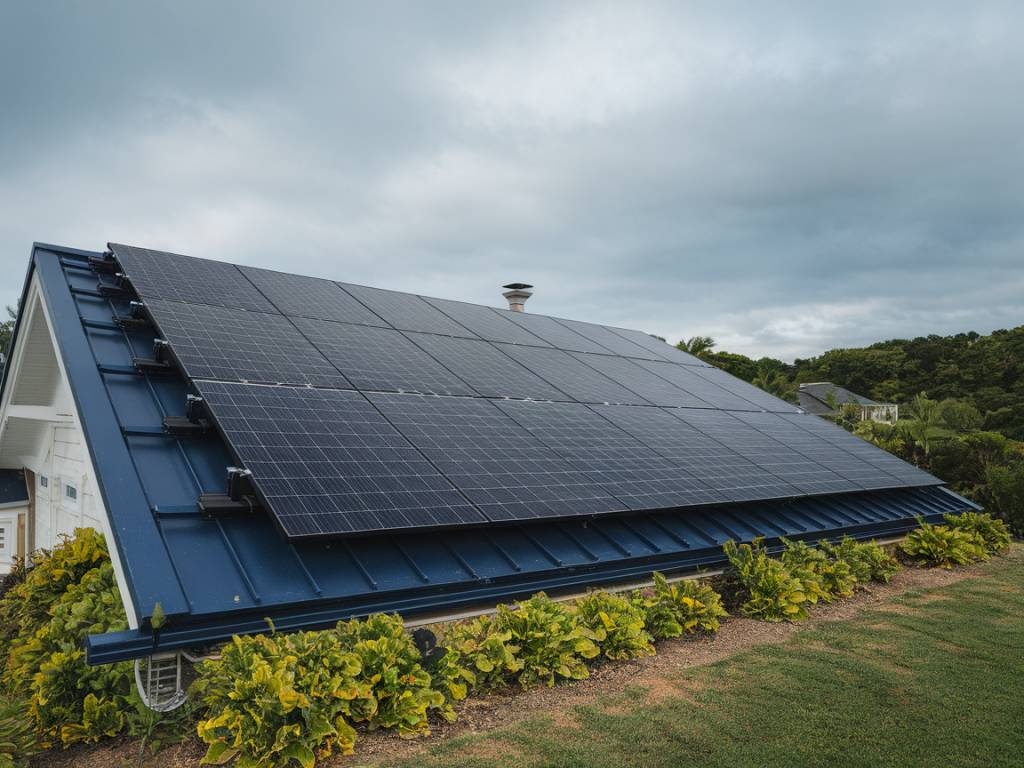« `html
Environmental Benefits of Installing Solar Panels
One of the most compelling reasons to install solar panels at home is the significant positive impact they have on the environment. Solar energy is a clean, renewable power source that reduces the reliance on fossil fuels, which are major contributors to greenhouse gas emissions and climate change.
By utilizing solar energy, homeowners can decrease their carbon footprint and promote a more sustainable future. Here are some of the environmental benefits:
- Reduction in air pollution: Solar panels generate electricity without emitting harmful pollutants.
- Conservation of water: Unlike traditional power plants, solar panels do not require water to generate electricity, which helps conserve this precious resource.
- Reduction of greenhouse gas emissions: Solar panels contribute to lower CO2 levels, combating global warming.
Cost Savings on Electricity Bills
Installing solar panels can lead to substantial savings on electricity bills. With the ability to generate your own electricity, you become less dependent on the grid and can potentially eliminate or significantly reduce your electricity expenses. The amount saved will depend on various factors such as the size of the solar panel system, local electricity rates, and household energy consumption.
Important points to consider regarding cost savings include:
- Net metering: In many regions, excess energy generated by your solar panels can be fed back into the grid, earning you credits and further reducing your electricity bills.
- Long-term savings: Although the initial installation cost may be high, solar panels generally pay for themselves within 5 to 10 years, after which you benefit from free electricity.
- Increased property value: Homes equipped with solar panels often see an increase in property value, making them a smart investment.
Energy Independence and Security
Another major benefit of installing solar panels is gaining energy independence and security. By generating your own electricity, you are less susceptible to power outages and fluctuations in energy prices. This reliability is especially crucial in areas prone to natural disasters or grid failures.
Key aspects of energy independence include:
- Stable energy costs: By producing your own energy, you protect yourself from market volatility and rising electricity prices.
- Energy resilience: Solar panels, combined with energy storage solutions like batteries, can provide continuous power even during grid outages.
- Decentralization: Distributed energy systems reduce the strain on the national grid and enhance the overall resilience of the power infrastructure.
Government Incentives and Rebates
Many governments around the world offer incentives, rebates, and tax credits to encourage homeowners to install solar panels. These financial incentives can significantly lower the initial investment cost and make solar panels more accessible to a wider audience.
Types of incentives include:
- Tax credits: Some governments provide tax credits that reduce the amount of income tax you owe, based on the cost of your solar panel system.
- Grants: Certain regions may offer grants to cover a portion of the installation costs.
- Subsidies: Government subsidies can lower the overall cost of purchasing and installing solar panels.
Low Maintenance and Durability
Solar panels are known for their low maintenance requirements and long lifespan. Once installed, they require minimal upkeep, making them an attractive option for homeowners seeking a hassle-free, long-term energy solution.
Advantages of low maintenance include:
- Longevity: Solar panels typically come with warranties ranging from 20 to 25 years, and many systems continue to generate electricity well beyond their warranty period.
- Minimal upkeep: Regular cleaning and occasional inspection are usually sufficient to keep solar panels operating efficiently.
- Reliable performance: Solar panels are designed to withstand various weather conditions, ensuring consistent energy production year-round.
Boosting the Local Economy and Job Creation
Investing in solar energy not only benefits individual homeowners but also positively impacts the local economy. The growing demand for solar panel installations drives job creation and supports local businesses involved in the supply chain, from manufacturing to installation and maintenance.
Economic benefits include:
- Job creation: The solar industry generates a significant number of jobs, including roles in manufacturing, sales, installation, and maintenance.
- Supporting local businesses: Local solar companies benefit from increased demand, fostering economic growth within the community.
- Promoting innovation: The renewable energy sector encourages technological advancements and innovation, contributing to overall economic development.
Enhancing Energy Efficiency and Smart Home Integration
Solar panels can be integrated with other energy-efficient technologies and smart home systems to further optimize energy use and enhance overall home efficiency. Combining solar energy with energy storage solutions, smart thermostats, and energy-efficient appliances can maximize benefits and reduce energy waste.
Integration advantages include:
- Energy storage: Battery systems store excess solar energy for use during non-sunny periods, ensuring a continuous power supply.
- Smart home technology: Integrating solar panels with smart home devices enables better energy management and monitoring, leading to more efficient energy use.
- Reduced energy waste: Combining solar energy with energy-efficient appliances and systems minimizes overall energy consumption and costs.
In essence, installing solar panels at home offers a myriad of benefits extending far beyond just cost savings on electricity bills. Whether it’s contributing to environmental conservation, achieving energy independence, or boosting local economies, solar panels prove to be a smart and sustainable investment for homeowners. With ongoing advancements in technology and increasing accessibility through government incentives, now is the perfect time to consider making the switch to solar energy.
« `
